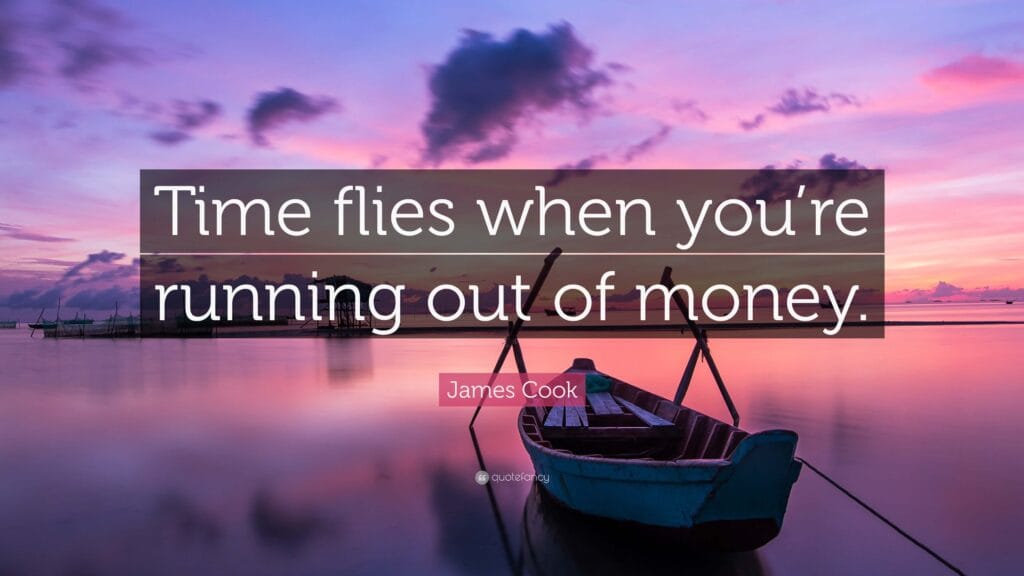
Did you realize?
There are so many people in the world who work hard for money and spend many hours earning it. You’re probably also one of the many people who think about whether you have enough money; I know I do! Money drives so many of the things that we do. But why? What is so special about this paper and metal in our pockets? Is it just about spending it? Or is there something more to it? Let’s take a look at why there is an endless chase for money and find out what we can uncover. You might find the findings interesting!
The Basic Needs: Money as Survival
To start with, money helps us fund our basic needs. We need food to eat. We need water to drink. Also, we need a place to live that is safe. We need clothes to wear. Those things are necessary for survival. Money gives us the ability to purchase those things. Without enough money, it becomes very challenging. People worry about what they will eat and where their next meal will come from. They fear losing a home. For these reasons, money is essential for our physical well-being. Money offers security for ourselves and our families.
Next, money gives access to health and wellness services. When we do get sick, we need to see doctors. There may be medicine we need. The cost of health and wellness services usually involves money. Good health and wellness service can save your life; it can improve your quality of life. Therefore, the money pursuit is related to the human desire to be healthy, and it is related to our instinct to survive.

Read more: The Secret to a Lifelong Friendship
The Comfort Factor: More Than Wants
Money provides more than just the necessities. It provides comfort and convenience. We can buy things, many of which make life easier. We can afford appliances for our homes. Also, we can afford transportation and go places. We can afford leisure activities. All these things are not critical to our physical survival, but they contribute to your life’s enjoyment. They reduce daily stress. So, the desire for comfort and convenience also motivates us to get money. We need a life that is generally easier and nicer.
Money provides opportunities also. It can pay for education, travel, and experiences; money can give enriched experiences to their lives, broaden their horizons, and provide them with personal growth. Therefore, pursuing money is also a step towards growth or new opportunities.
Social Status: Money as a Measure
Money is often associated with social status, and many people evaluate others based on their wealth. The more money one has, the more respect they has. Money can lead to a feeling of self-importance; persons with higher incomes may have greater influence. Evidence of success can be a significant motivator for some people, and there are many who pursue monetary success as a measure of belonging, as these people are told that they should accumulate a certain amount of wealth; therefore, they experience a sense of accomplishment in the eyes of others.
It is important to note that the race to acquire wealth can be a slippery slope. Continuously comparing ourselves to others can ultimately lead to discontent. Fighting the urge to have more to impress is a continuous cycle. A report by the World Economic Forum in 2023 brought to attention a rise in “social media envy” when it comes to their perceived pressure to spend money to experience monetary events and display wealth to gain a particular social status. Money alone does not determine someone’s worth. While it is clear that there is a social pressure involving wealth.
The Psychological Pull: A Closer Look
Psychologists have explored our emotional attachment to money and how it can often address our deepest human needs. Money can provide security for some people. Money can help alleviate any fears they may have about the future and provide some measure of control. The feeling of security money can provide can be very potent and may drive people to work harder to build it up.
Moreover, neuroscientists have studied the way the brain processes money, and it turns out, much like receiving food or compliments activates the same reward pathways in our brains, money activates the same pathways, too.
The brain’s reward pathways are driven by a neurotransmitter called dopamine, and the motivation to acquire money will feel good in the brain, and can be very addictive. Further still, for some people, money conveys self-worth. They genuinely feel that more money correlates to having more value as a person. This perception will drive a person to work themselves to death for more money. Unfortunately, an all-consuming fixation on accumulating money can lead to burnout and a lack of satisfaction in other areas of life. True self-worth comes from within and not from the artificiality of possessions.

The Illusion of Happiness: A Psychological Perspective
Many people commonly believe that an increase in wealth equals an increase in happiness. The link between money and happiness is often positive; this is partly because money does relieve some amount of financial pressure, and money can create more opportunities. Altruism aside, however, research shows that there is a limit to this positive association. A number of behavioral studies suggest that there is a diminishing return after having sufficient money to fulfill basic needs plus some level of financial comfort. An obsession with the pursuit of wealth can create generalized anxieties or even stress.
Another important factor is that one can realize that, generally, many of what constitutes happiness is rarely connected to being wealthy. Relationships, purpose, health, personal development, and other areas are usually much more closely tied to an individual’s more holistic happiness than having too much money. An obsession with ever-increasing wealth can sometimes keep individuals from considering what other important factors in life exist. Money’s relation to happiness can be a strong illusion.
The Statistics Tell Us: Recent Research
A 2023 global survey on financial well-being found that although 70% of respondents said it was important to have enough money, just 55% said it was the most important intrinsic factor of happiness overall. This supports the case as a significant factor, but not the only one. Also, a study published in the Journal of Positive Psychology (2024) showed that participants who ranked experiences above monetary goods and possessions reported higher levels of life satisfaction. This could mean that the value of how we utilize our money could contribute greater towards happiness than the total available to us.
Read more: Freedom from Baggage: How to Let It Go

Muslims Perspective: Balance & Moderation
Islam views wealth as both a test and a trust from Allah (SWT). Islam exhorts people to earn a lawful livelihood and to be expeditious in spending it, while also warning people against the dangerous love of money and to not aspire or take wealth as the ultimate goal. The Qur’an emphasizes striking a balance by doing good with one’s wealth, helping those in need, while also remembering that it all belongs to Allah.
The Quran says: “
Wealth and children are the adornment of worldly life. And the enduring good deeds are better to your Lord for reward and better for [one’s] hope.
” (Surah Al-Kahf, 18:46)



Leave a Reply